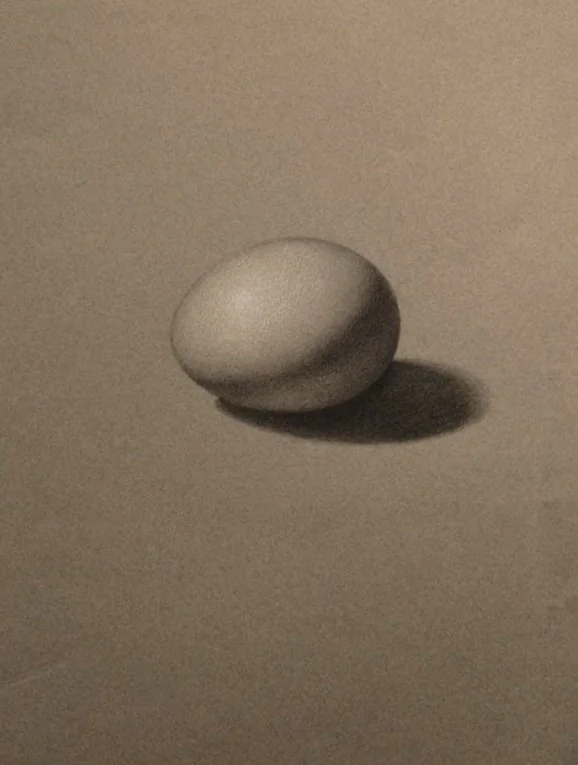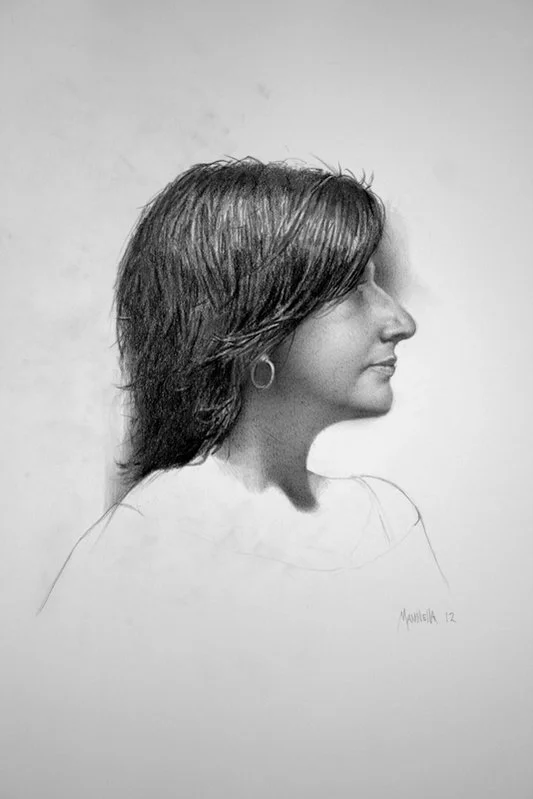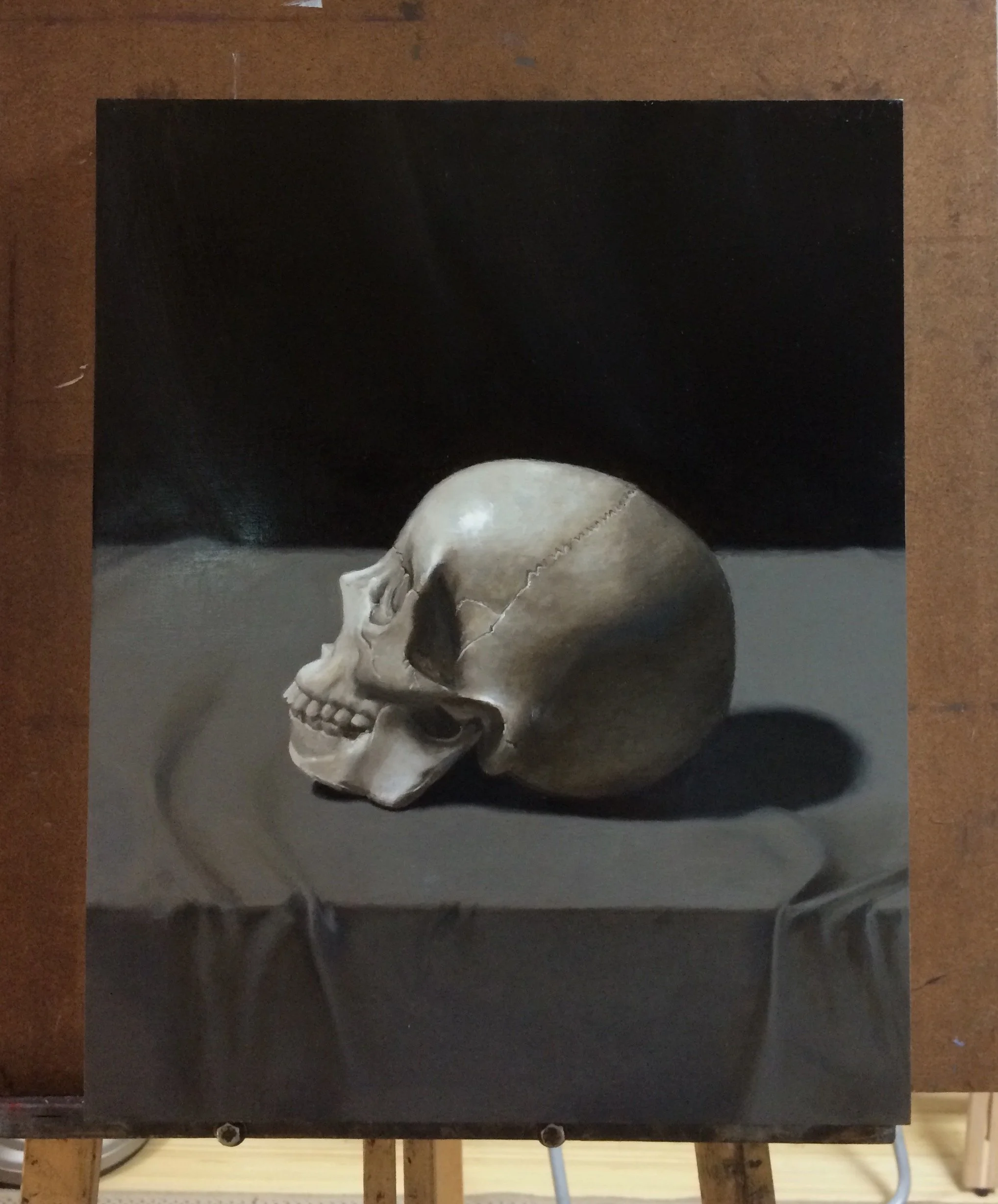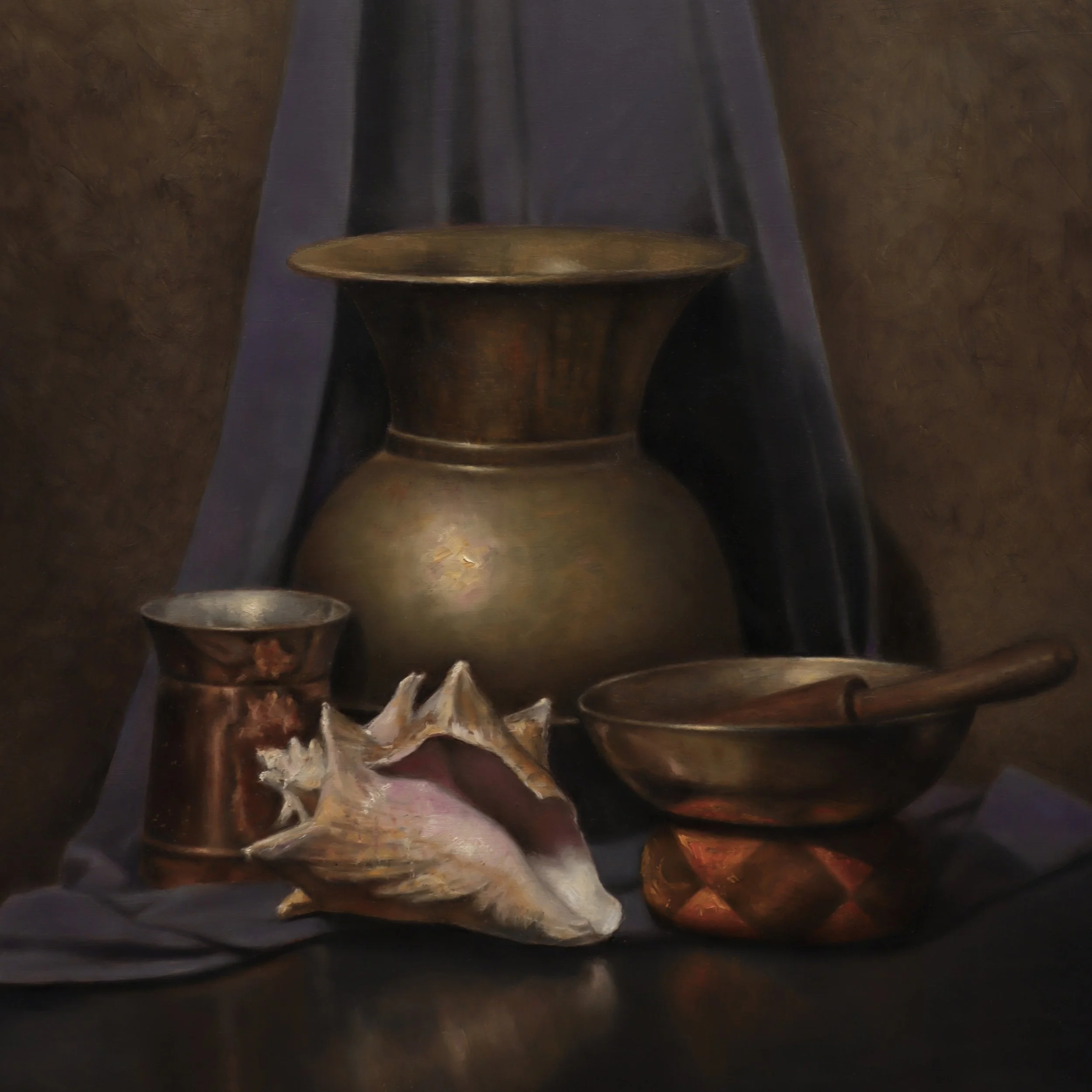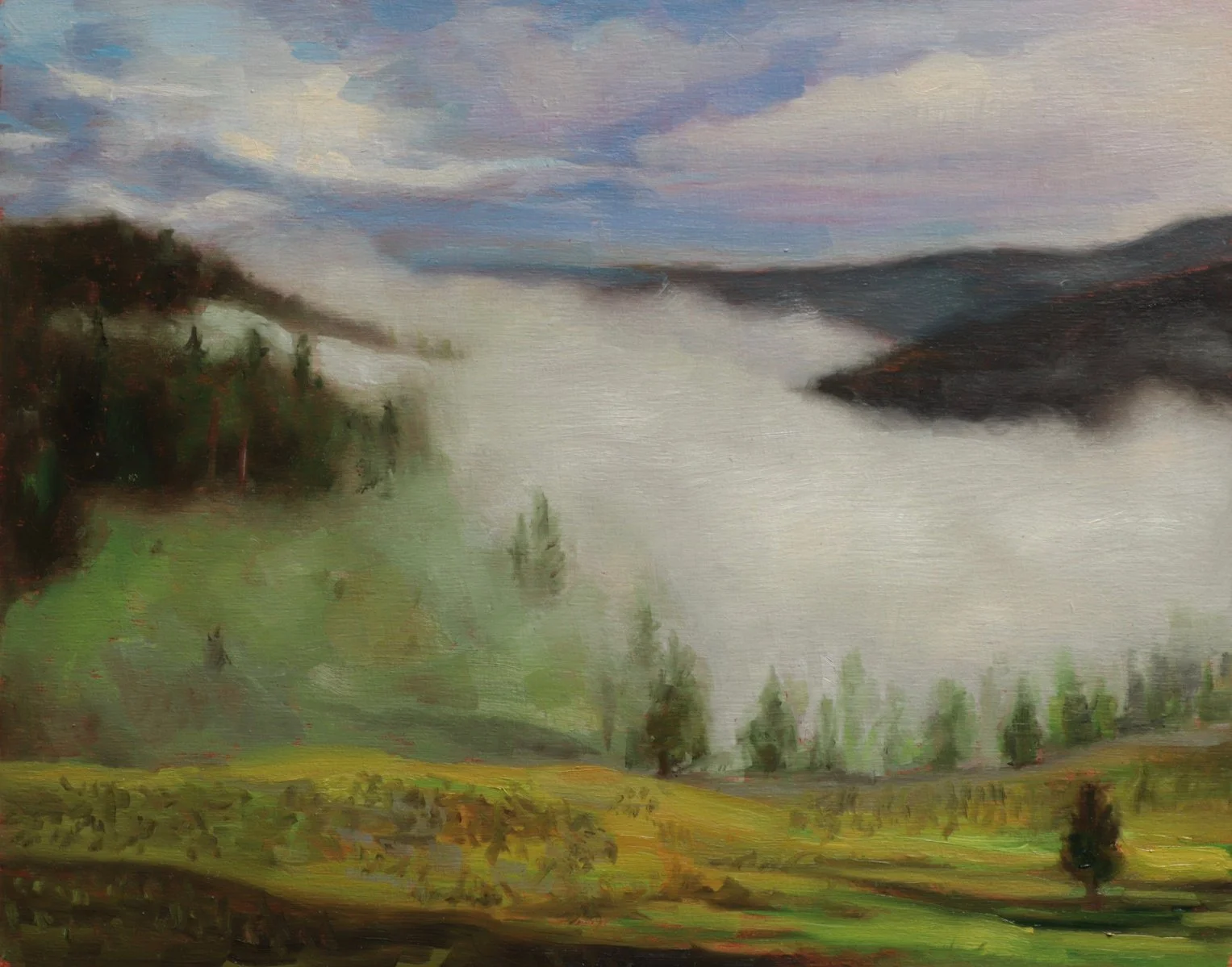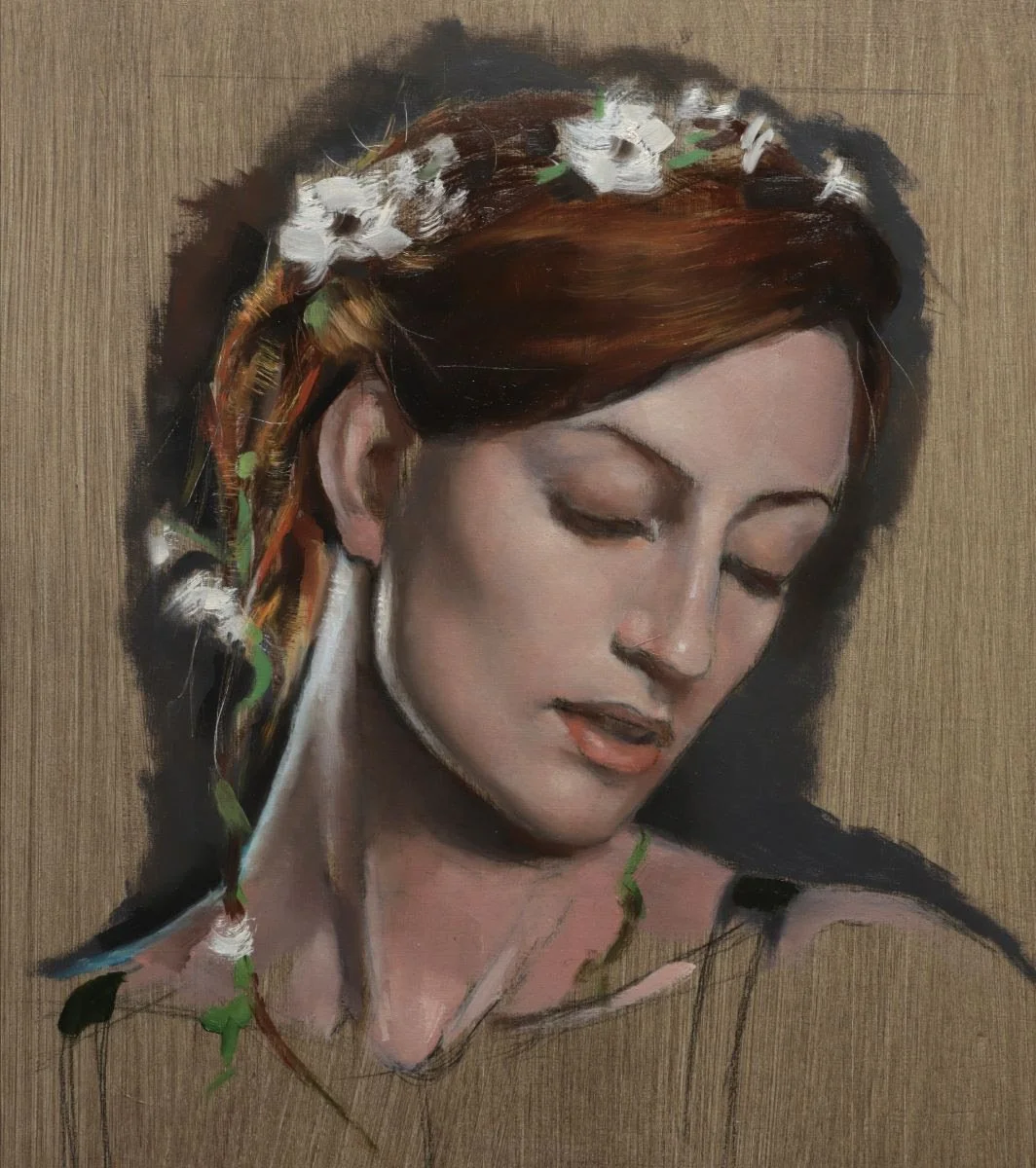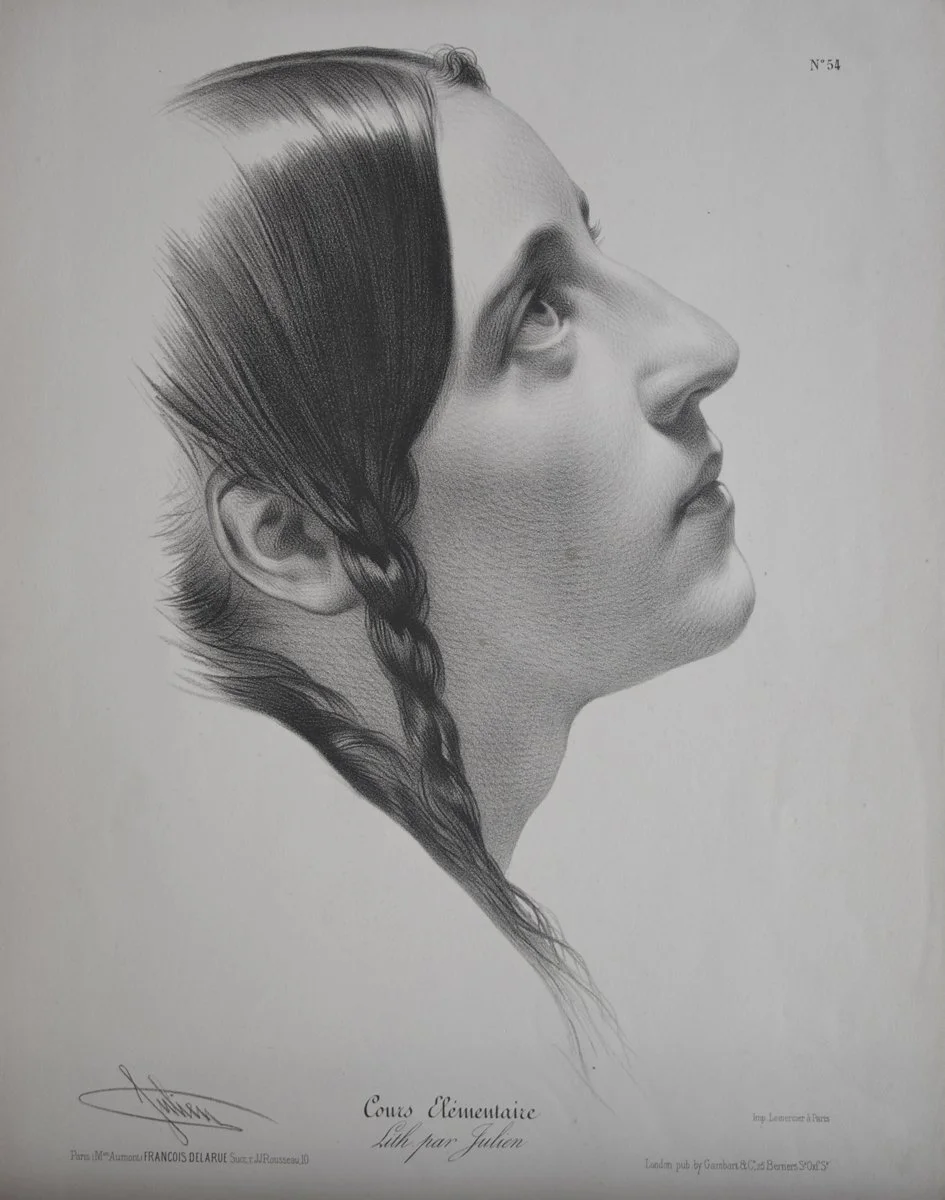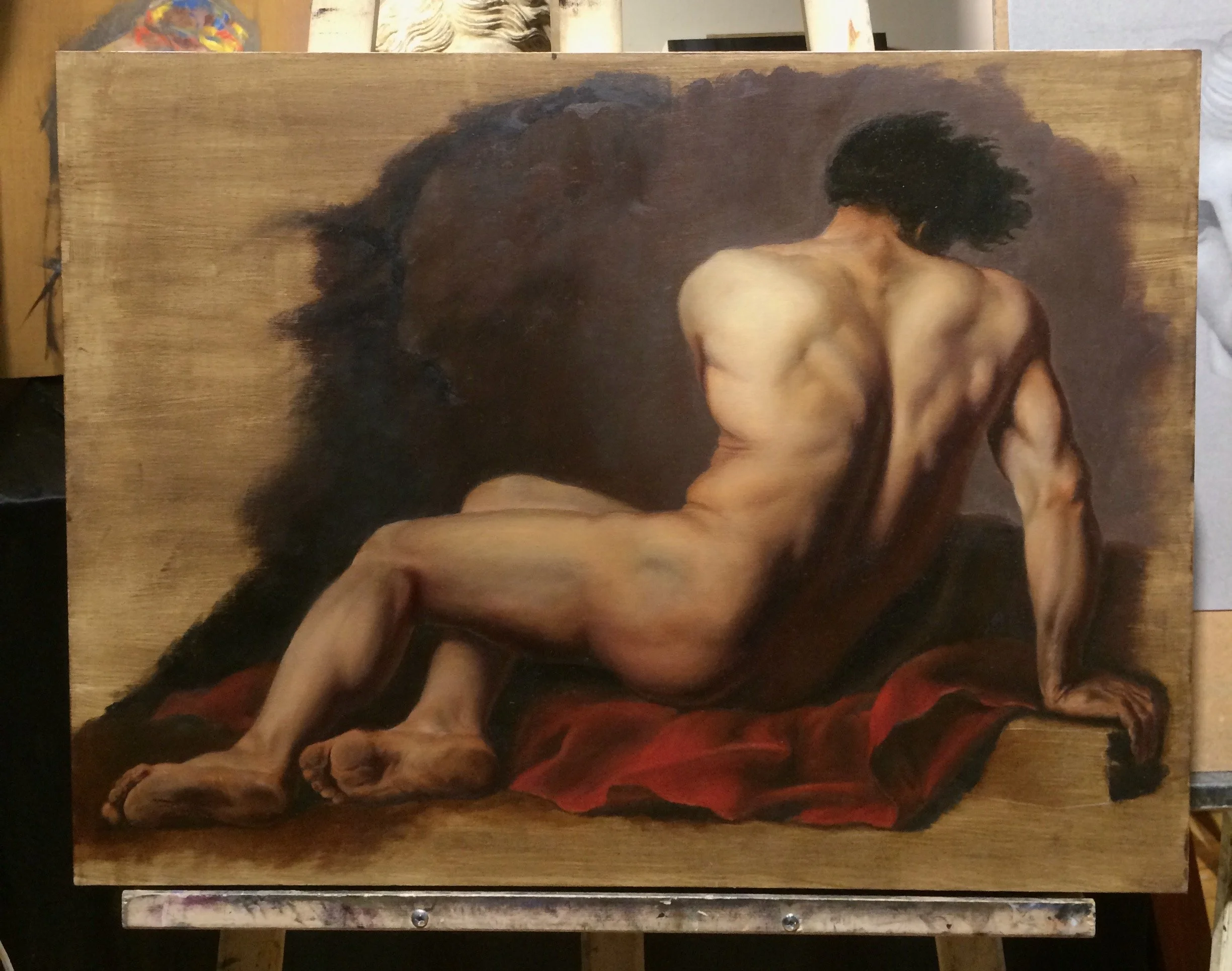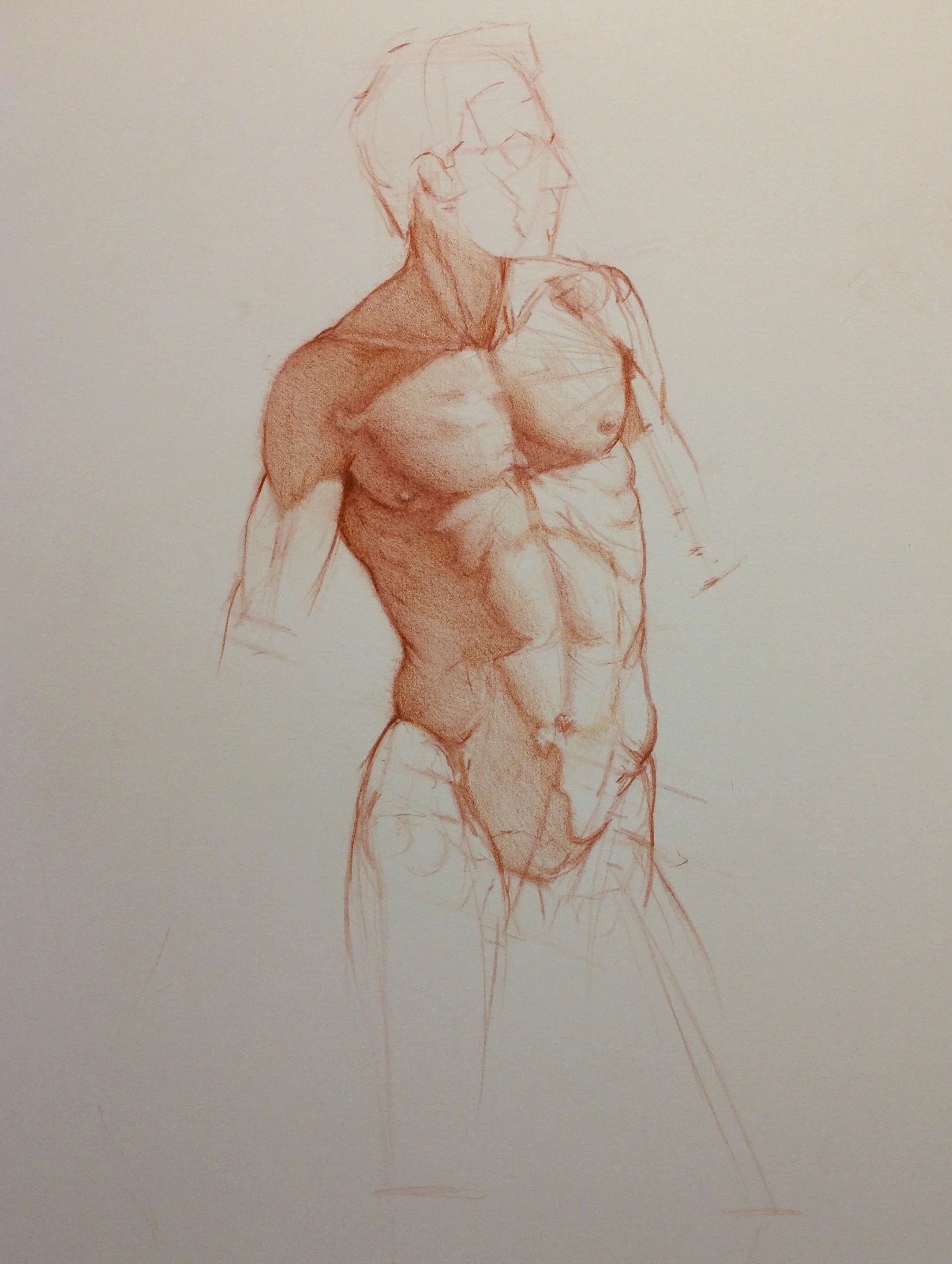Our Courses
Our teaching philosophy focuses on detailed individual instruction and mentorship within a small class size. Through this approach, we are able to accept new students to start studying with us at any time throughout the year. All courses are offered as 4 week sessions and are available on any of our teaching days.
Absolute beginners can start with our Learn to Draw course (no prior drawing experience required!).
New students with some experience should begin with Cast Drawing.
Learn to Draw
No prior drawing experience is required.
Learn to Draw I: We'll start at the beginning and each week work through a series of exercises. Lessons involve; learning to see and represent value relationships (light and dark), strategies for drawing shapes, learning to see and simplify forms, ideas for creating depth and volume in your work.
Learn to Draw II: In this course we begin to draw basic 3 dimensional shapes from life. Emphasis is on perspective and accuracy with the intention of creating a realistic depiction. This course also investigates line quality with hatching exercises and linear exercises.
Cast Drawing
This is the mandatory first drawing class for students with some drawing and painting experience.
We introduce several important principles of drawing that can be applied to any subject drawn from observation. Students learn to make accurate drawings and render them to achieve a strong 3-D effect by studying exemplary casts of Renaissance and Classical sculpture.
Life Drawing
Open to students of all levels.
An instructed 4 week course with a live model. Students learn to construct figures accurately and render them to express the volume of the body. This is the foundation of an academic approach to drawing.
Our Life Drawing curriculum involves multiple elements: construction and proportion, mass drawing, hatching, and drawing from a long pose.
Grisaille Painting
This is a mandatory first course in oil painting
Students may begin this course after successful completion of Cast Drawing.
Students gain control of the medium using a limited palette, working from a cast. Emphasis is placed on attaining drawing proficiency with paint and rendering the form to achieve a strong illusionistic effect. Grisaille painting is an important prerequisite for the complexities of painting in colour.
Still Life Painting
After completing Cast Drawing, students continue their training using a chromatic palette.
Relationships of hue, value, and chroma are investigated using a variety of pigments. Composition, surface texture, and varied light effects are explored, leading to a sophisticated depiction of pictorial space.
Landscape Painting
Open to students of all levels.
A course investigating composition, value, and colour applied to the landscape. Workshops will be organized to paint plein-air, weather permitting, between May and October. At other times of the year, students may copy an old master example in the studio.
Portrait Painting
This class focuses on compositions of the whole figure, or the portrait, painted in oil. We typically work from a live model. Students learn to block-in the important forms with an emphasis on proportion, then proceed to paint the model in grisaille or in colour.
Students often first complete Cast Drawing and Grisaille Painting. Still-life Painting is also highly recommended.
Historical Techniques: Drawing
We examine master drawings to learn different approaches to mark-making, using a variety of traditional materials: silverpoint, natural chalk, pen & ink, and mixed media. Students have the opportunity to work from Studio Brésoles collection of historical prints and drawings.
Historical Techniques: Painting
A course focusing on painting materials and their traditional usage. Students complete a copy of an old master painting using an appropriate palette. By working through the necessary stages of their painting, from underdrawing to glaze, students learn advanced techniques that they may apply to their own work.
Anatomical Drawing I
This course is designed to help students understand the 3-dimensional structure of the human body in perspective. We will apply an historical canon of proportion to the skeleton, then discuss its mechanisms and movements.
Cast Drawing and some Life Drawing are important prerequisites for this course.
Anatomical Drawing II
Students draw layers of muscles over the skeletal structure to understand the volumes and structure of the body.

